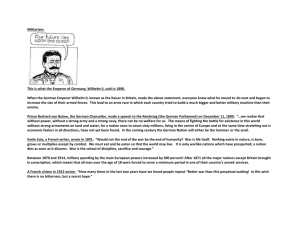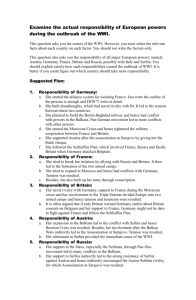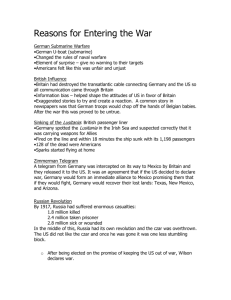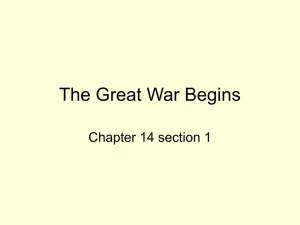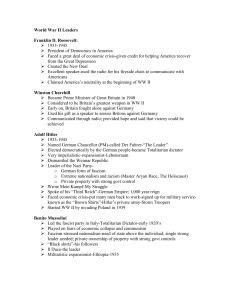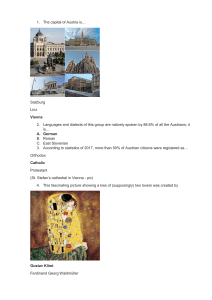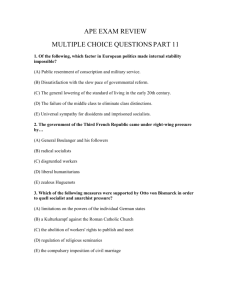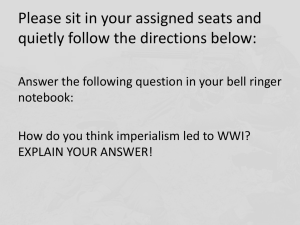Lesson 9: The Causes of the First World War (2)
advertisement
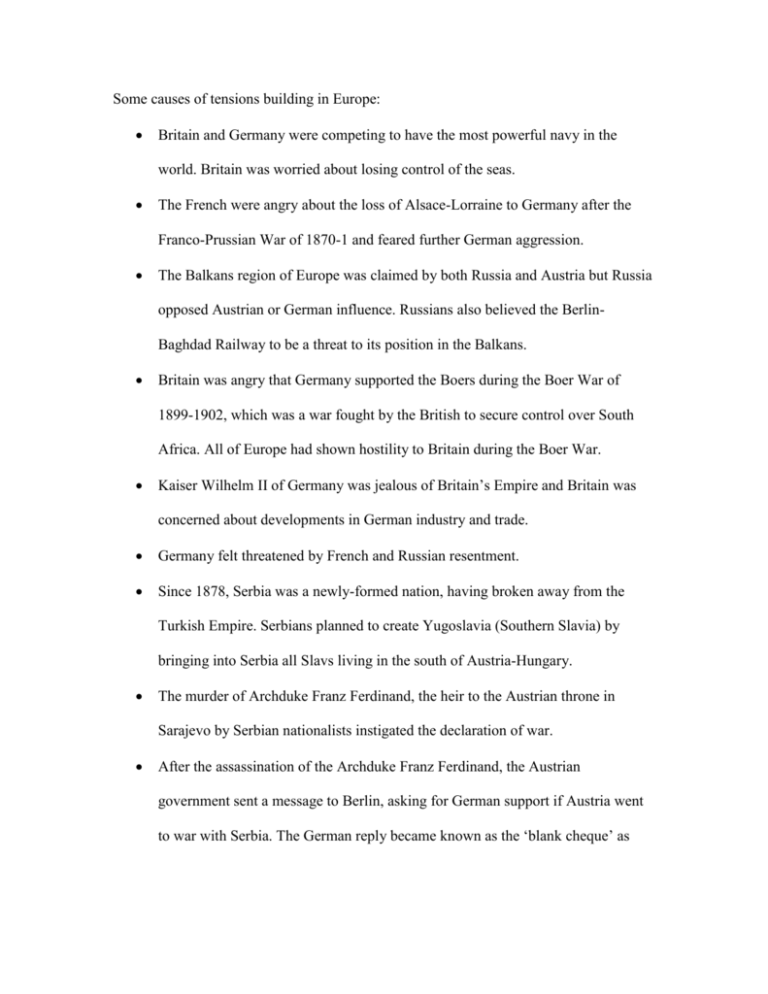
Some causes of tensions building in Europe: Britain and Germany were competing to have the most powerful navy in the world. Britain was worried about losing control of the seas. The French were angry about the loss of Alsace-Lorraine to Germany after the Franco-Prussian War of 1870-1 and feared further German aggression. The Balkans region of Europe was claimed by both Russia and Austria but Russia opposed Austrian or German influence. Russians also believed the BerlinBaghdad Railway to be a threat to its position in the Balkans. Britain was angry that Germany supported the Boers during the Boer War of 1899-1902, which was a war fought by the British to secure control over South Africa. All of Europe had shown hostility to Britain during the Boer War. Kaiser Wilhelm II of Germany was jealous of Britain’s Empire and Britain was concerned about developments in German industry and trade. Germany felt threatened by French and Russian resentment. Since 1878, Serbia was a newly-formed nation, having broken away from the Turkish Empire. Serbians planned to create Yugoslavia (Southern Slavia) by bringing into Serbia all Slavs living in the south of Austria-Hungary. The murder of Archduke Franz Ferdinand, the heir to the Austrian throne in Sarajevo by Serbian nationalists instigated the declaration of war. After the assassination of the Archduke Franz Ferdinand, the Austrian government sent a message to Berlin, asking for German support if Austria went to war with Serbia. The German reply became known as the ‘blank cheque’ as Germany promised to support Austria whatever happened. This encouraged the Austrian government to attack Serbia.
